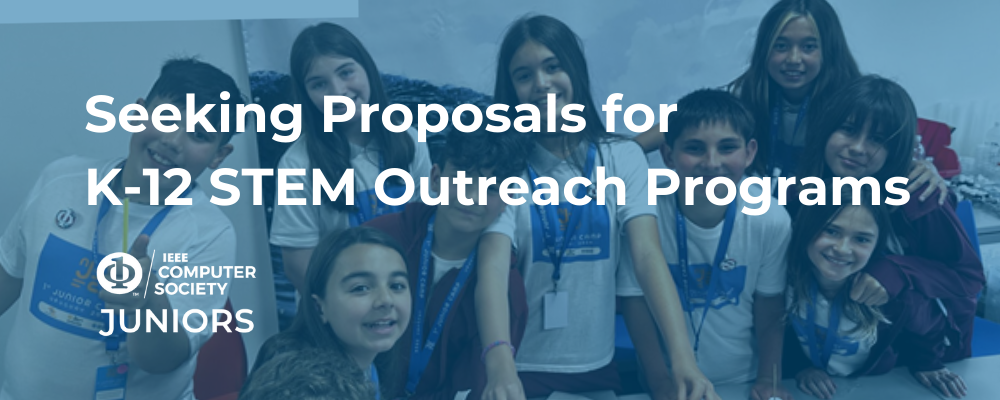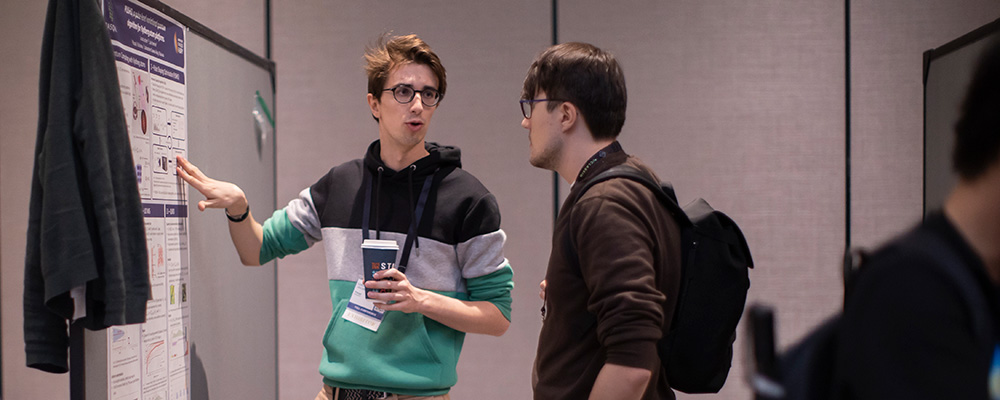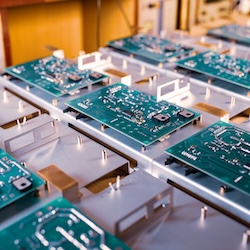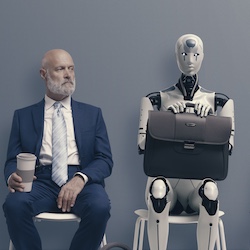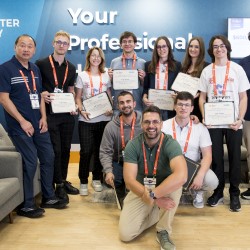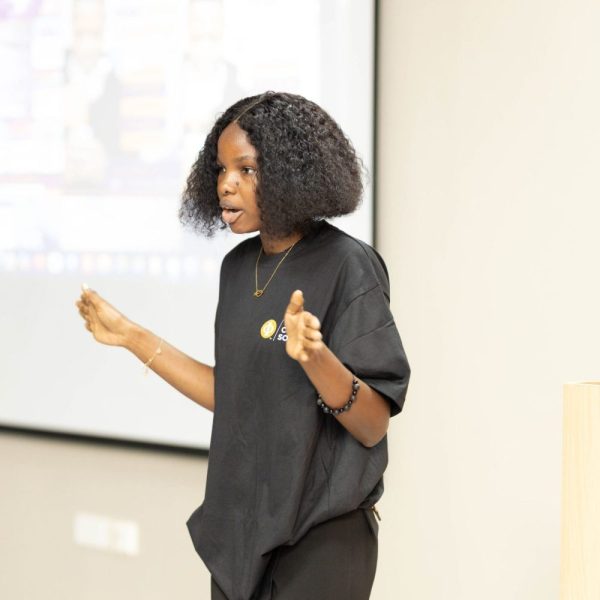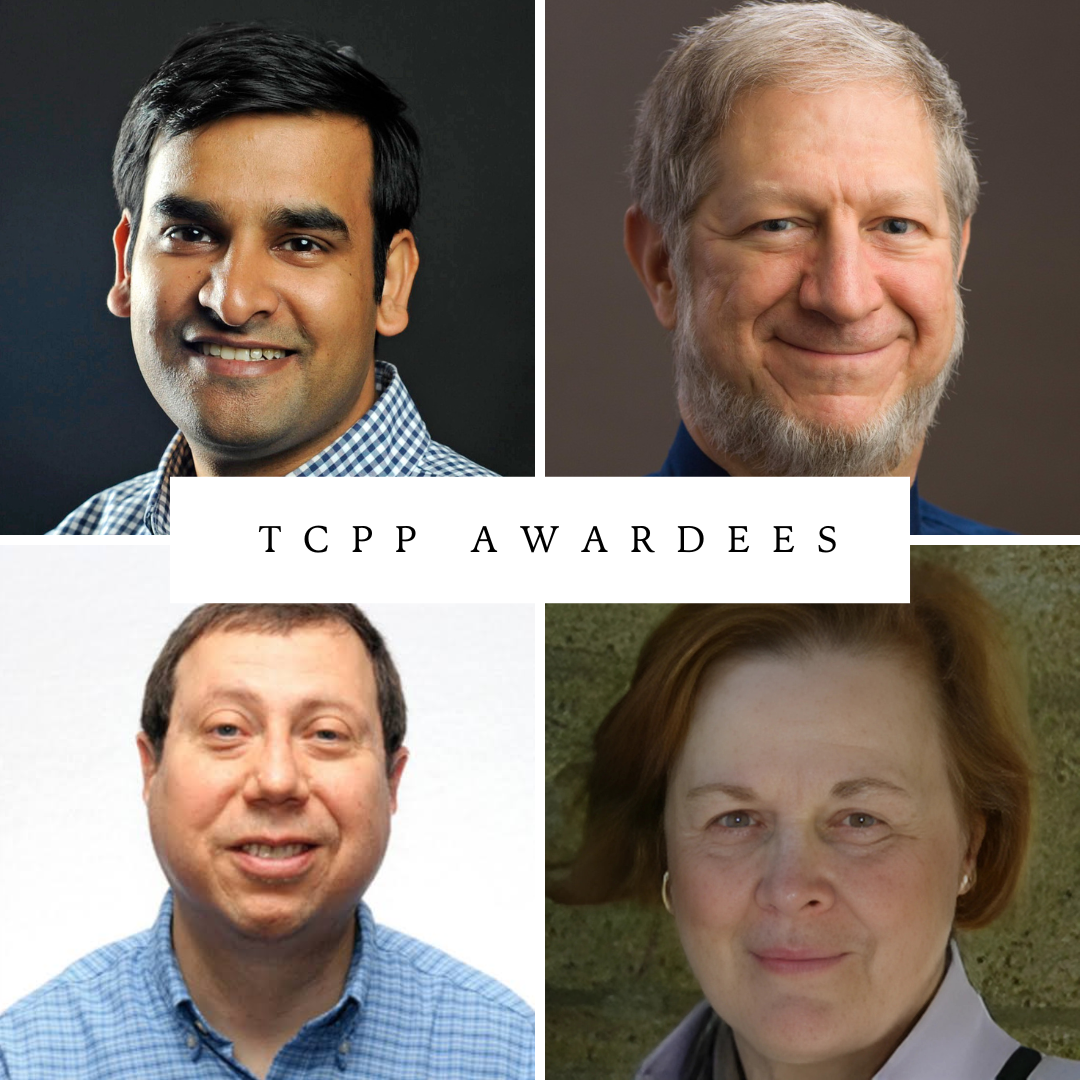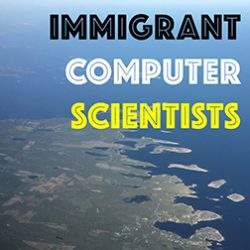A team of experts foresee 22 breakthrough technologies set to redefine industries and shape the future of our world for decades to come.
Support your K-12 programs that spark interest in computing and STEM fields. Proposals are accepted on a rolling basis. Submit a proposal today.
Since the 1980s, IEEE Intelligent Systems has been bridging the gap between theories and practices in artificial intelligence.
Explore how a Master’s in Data Science can prepare you for one of the fastest-growing careers of the decade. Read on.
Search upcoming IEEE conferences in Asia, Europe, and North America.
Have you been looking for a way to make your mark in computing? Look no further than these calls. We want contributions from computing professionals who have interest and expertise from the many disciplines within the computing community!
High-level summaries of the latest developments and discoveries in computing. Download reports, guides, predictions, and tips.
By Jiewu Leng
Introduction The rapid development of electronic products results in a significant need for either upgrading existing electronics production lines (EPLs) or designing newEPLs. Changes in product orders also lead to a frequent reconfiguration of electronics production lines. However, due to unreasonable design, many EPLs fail to meet the initial objective.…
By Isla Banda
AI is having a major impact on society, from consumer technologies to driving businesses. But among all these large language models and deep neural networks, there are lurking inefficiencies that most people aren’t taking into account. Wasted computational power, hidden costs, the environmental footprint, and more. Whether these inefficiencies are…
By IEEE Computer Society Team
Imagine a downtown urban street on a traffic-heavy Saturday night. Now, add a severe snowstorm and an autonomous vehicle that safely navigates it all, despite fogged-up cameras, unpredictable pedestrians in oversized outerwear, streetlights throwing glare off a dozen wet surfaces, and the snow itself, which all but obliterates the visibility…
By IEEE Computer Society Team
With elections right around the corner, we encourage all voting members to take the time to understand who’s running and what their vision for the IEEE Computer Society is. Listen in to learn more about this year’s presidential candidates, Joaquim Jorge and Nils Aschenbruck. The town hall will be held…
By Kunal Khanvilkar
Ensuring regulatory compliance is a high-stakes challenge across industries. Banks, payroll processors, and legal firms alike grapple with complex rules and massive data — and the consequences of failure are severe. In 2024, U.S. regulators fined Citigroup $136 million for falling short in fixing data management issues flagged years prior…
By IEEE Computer Society Team
What Is TechAble? The TechAble training initiative at the Kwame Nkrumah University of Science and Technology (KNUST) in Ghana began in February 2025 and ran for eight weeks. Aimed at supporting students with disabilities, TechAble provided mentorship and high-quality instruction for three courses: web development, graphic design, and digital marketing.…
The Role of TCPP in Advancing Parallel Processing The Technical Community on Parallel Processing (TCPP) serves as a global platform dedicated to advancing research and education in parallel processing while also contributing to the development of technical standards in the field. It focuses on a range of topics related to…
By Isla Banda
Consensus in blockchain isn’t just a technical problem—it’s an intellectual minefield. You’ve got decentralized nodes spread across the globe, each operating under different assumptions, with varying latencies, incentives, and potential motivations, and yet they’re all expected to come to the same conclusion about the state of a distributed ledger. No…
What if a real-time automated decision-making process needs a computer vision system to produce photorealistic visuals in a mere fraction of a second? In many cases, this requires too much computational power — if it’s even possible at all. When computer vision uses 3D Gaussian splatting (3DGS), it provides a…
By Isla Banda
They aren’t your average hires. They don’t glide through job interviews or thrive in open-plan offices. But when it comes to pattern recognition, threat modeling, or zero-day hunting, neurodiverse individuals often outperform their peers. And yet, they remain largely untapped in the cybersecurity workforce. If we’re serious about fortifying digital…
By Amod Agrawal
Introduction From fitness trackers to smart speakers, mobile sensing has quietly become ubiquitous, embedding itself into our daily lives. These devices are capable of monitoring motion, detecting presence, identifying user activities, and even inferring health conditions, sometimes without any user interaction. As these applications grow and become central to smart…
By IEEE Computer Society Team
An interview with Gurindar Sohi, recipient of the 2025 Computer Pioneer Award Gurindar (Guri) Sohi, Vilas Research Professor, John P. Morgridge Professor, and E. David Cronon Professor of Computer Sciences, Computer Science Department, University of Wisconsin-Madison, Madison, Wis., U.S.A., has remained in the same office at the university since 1987…
By Madhu Chavva
Back in the 90s, when I was in school, education was like a uniform everyone had to wear—the same textbooks, the same blackboard, and the same hurried lessons for all. If you fell behind, your only lifeline was to awkwardly raise your hand in the middle of class or spend…
By IEEE Computer Society Team
From tackling the spread of COVID-19 misinformation on social media to his award-winning research on fall detection and indoor localization for ambient assisted living, Nirmalya Thakur actively engages with issues of critical importance to humans and their well-being. Residing at the intersection of various fields–including big data, HCI, machine learning,…
By Yaowei Wang, Wenwu Zhu, Wen Ji, et al.
Introduction Ubiquitous camera networks in smart cities create massive amounts of images and videos at a range of spatial-temporal scales. However, the capabilities of visual processing systems often lag behind the rapid growth of video data and city brain system. To address this challenge, a novel collaborative visual computing framework,…
There are no results for this search.
Analysis, Blogs, Commentary
Featured Podcasts



